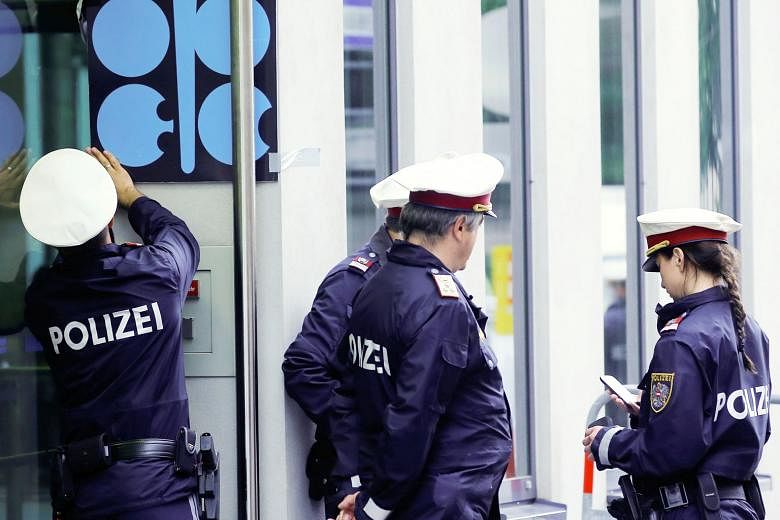HONG KONG • Oil held its biggest loss in three weeks as Opec's move to prolong supply cuts for nine months disappointed investors hoping for more.
"The lack of deeper cuts, or a longer duration, sent the WTI below US$48.92," Ms Ipek Ozkardeskaya, a market analyst at London Capital Group, wrote in a note, referring to the benchmark West Texas Intermediate (WTI) crude future.
"Failure to regain this level would suggest a short-term bearish reversal on the pre-Opec positive trend."
Oil had climbed back above US$51 a barrel after Saudi Arabia and non-Opec member Russia rallied support from the Organisation of Petroleum Exporting Countries (Opec) and other nations to extend the deal into next year.
While stubbornly high global inventories have taken longer than expected to drain, signs that US stockpiles are easing from a record had added to the optimism.
"What Opec was trying to solve is not the price of oil as it would be immediately after the meeting, or as it would be today or next week, but more so where it will be at the end of the year," Mr Harry Tchilinguirian, a commodities analyst at BNP Paribas, said. The decision marks "a commitment to a supply strategy, which in combination with the seasonal swing in demand should bring about the inventory decline that they promised".
WTI for July delivery was at US$48.93 a barrel on the New York Mercantile Exchange. WTI is down 2.8 per cent this week. Brent for July settlement was at US$51.55 a barrel on the London-based ICE Futures Europe exchange, up 9 US cents. The contract lost US$2.50, or 4.6 per cent, to US$51.46 on Thursday. The global benchmark crude traded at a premium of US$2.61 to WTI.
Opec ministers failed in their attempt to convince the market that they have a plan when they agreed to extend output cuts. The extension was supposed to show an unprecedented degree of cooperation between Opec and a group of non-member producers. It was meant to demonstrate a commitment to do whatever is necessary to bring inventories down to their five-year average level, Bloomberg Gadfly columnist Julian Lee said.
Analysts at Barclays wrote in a research note that "some market participants may have expected either a deeper cut, a longer one, inclusion of more countries, or other such icing on the cake". The sell-off "is likely short lived, and we continue to believe that inventory draws in the coming summer months will be supportive of prices", they wrote.
Opec will face the test of defending market share and generating revenue growth as it transitions from the curbs, Goldman Sachs Group analysts said in a report on Thursday. Backwardation - when near-term crude prices are higher than those for later months - will be needed for the cuts to shrink the glut, and prevent an increase in US shale production, the bank said.
BLOOMBERG

